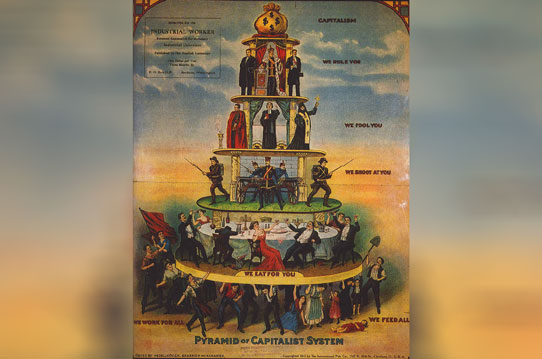Social Conflict and Class Struggle: Strife in an Era of Co-operation
 Free markets and free trade encourage co-operation. Individuals, through specialization and exchange, act in their best interests and in the best interests of society at large. Yet economists often see not co-operation, but class struggle.
Free markets and free trade encourage co-operation. Individuals, through specialization and exchange, act in their best interests and in the best interests of society at large. Yet economists often see not co-operation, but class struggle.
Jean-Baptiste Say saw government’s ability to tax and distribute privilege as a source of social conflict. The economist and philosopher Karl Marx viewed society as constantly in conflict. For Marx, our community is composed of three classes: those who own land, those who own factories, buildings and other means of production, and those who work for wages. Each class of society has different priorities and interests, and therefore or society is characterized by strife. For Henry George, a key cause of social unrest was that natural resources, the birthright of all, were privatized.
In this seminar Tom Ballou traces the emergence of theories of class struggle in a world were co-operation was, and is, the key to economic development.
| Instructor: Tom Ballou |
|
Sessions: 1
|
| Dates: November 30, 2016 |
|
Time: 6:00 PM – 8:00 PM EST
|
|
Location: John Haynes Holmes Community House, 28 East 35th Street (Madison & Park)
|


